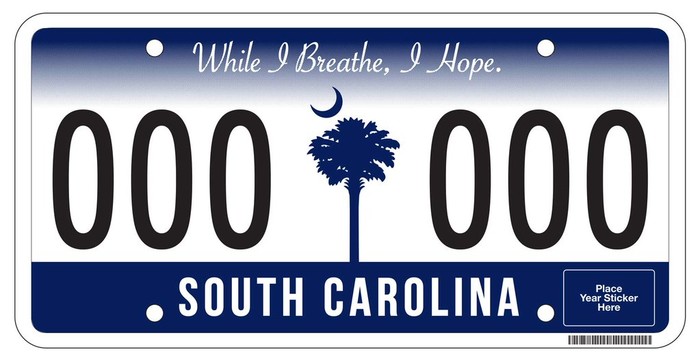
Flickr User: bondidwhat
Final Update January 14, 2013: The South Carolina passed the threshold with 26,104 signatures and some two months have passed, but not without answer.
Jon Carson, director of the Office of Public Engagement, has replied saying that the administration can't support secession.
In part:
In a nation of 300 million people -- each with their own set of deeply-held beliefs -- democracy can be noisy and controversial. And that's a good thing. Free and open debate is what makes this country work, and many people around the world risk their lives every day for the liberties we often take for granted.
But as much as we value a healthy debate, we don't let that debate tear us apart.
Read the full response over here. If you still really want to take a break from all the rampant government control, there may be a home for you in rural Idaho.
Read all about the drama below....
Secession is nothing new to South Carolina, this state seems to have had a history with leaving the nation, so it comes really as no surprise that some in the state are at it again.
Along with Arkansas and Texas residents, a South Carolina resident has set up a petition to secede from the nation in the wake of President Barack Obama winning a second term. The petitions are up at (irony alert) the Obama Administration's "We the People" website.
The petition is for South Carolina to secede from the nation and form their own sovereign state. Oddly (and humorously) a lot of the signatures on the petition are from those living in other states. Those who created the petition have until December 10th to reach their goal of 25,000. If they succeed at their secession petition then a White House staffer will review it, send it to the appropriate policy experts and issue an official response - which will probably be along the lines of "LOL".
The petition has been live since November 10th and as of this writing there are only 3,348 signatures.
Interestingly though, former Post & Courier contributor and current consultant Dan Conover, wrote an almost prophetic piece on his blog entitled, "Hell, let's just give 'em the South".
In part Conover writes, with tongue firmly planted in cheek:
"It would be a forced secession.The rest of the union would simply cut its ties to the South and thereby pocket the net transfer of federal tax dollars to the states of the old Confederacy. More importantly, removing these states from our Capitol Hill calculus would dramatically change our ideas about political possibility. Sure, we'd still have James Inhofe (more on that later), but removing the South would change the balance of power in the U.S. Senate from our current 58-41 deadlock to a 52-23 Democratic super-majority."
Read the rest of Conover's piece here and if you want, sign the petition here.
Update, November 13, 2012: Even more states have now created secession petitions.
The first to create a petition was Texas and they have successfully hit the 25,000 signatures mark. Besides Texas and South Carolina the other states, which now all told are 20, are: Alabama, Arkansas, Colorado, Florida, Georgia, Indiana, Kentucky, Louisiana, Michigan, Mississippi, Missouri, Montana, New Jersey, New York, North Carolina, North Dakota, Oregon, and Tennessee.
As of this update the South Carolina petition is up to 11,387 signatures.
Despite Texas reaching the 25,000 signature as mandated by the "We The People" website the likelihood of it or any other state actually seceding is pretty much zero.
Sorry to burst your bubble.
Update, November 14, 2012: More states, counter petitions chance of it happening still zero.
Residents of 40 states have created a secession petition. The states are as follows: Pennsylvania, Arizona, Oklahoma, Arkansas, Illinois, Idaho, Rhode Island, Virginia, Wisconsin, Alaska, Utah, Wyoming, California, Delaware, New Hampshire, Nevada, Kansas, Ohio, South Dakota, West Virginia, Nebraska, South Carolina, Georgia, Missouri, Tennessee, Michigan, New York, Colorado, Oregon, New Jersey, North Dakota, Montana, Indiana, Mississippi, Kentucky, Florida, North Carolina, Alabama, Texas and Louisiana.
Additionally, we have discovered a second plea for the Federal Government to allow South Carolina to secede from the Union that has thousands more signatures. The "Peacefully grant the State of S.C. to withdraw from the United States of America and create its own NEW government." petition has 19,531 and only requires 5,469 more before it reaches the magic 25,000 signature mark.
Now, however, there are some counter secession petitions. Some of the counter petitions we've come across call for deportation for those who signed secession petitions, another, along the same line, is to strip signers of their citizenship and exile them. But, two of the best have to be one that asks to "Force all states to pay their portion of the national debt before they can secede from the union" and one which asks to "Peacefully grant the city of Austin Texas to withdraw from the state of Texas & remain part of the United States." -which, lets face it, Austin doesn't really belong in Texas anyway.
On a more serious note, WHNT in Alabama had a piece where they spoke with an Athens State University History Professor who made the point, "If you're serious about secession, you don't ask the Federal Government's permission."
WHNT's video is below.
Additionally, an interesting piece from the New York Personal Injury Law Blog popped up on the radar that has a story regarding the topic of secession and Supreme Court Justice Antonin Scalia. In the piece Scalia, who is arguably one of the most conservative justices, is quoted as saying:
If there was any constitutional issue resolved by the Civil War, it is that there is no right to secede. (Hence, in the Pledge of Allegiance, “one Nation, indivisible.”) Secondly, I find it difficult to envision who the parties to this lawsuit might be. Is the State suing the United States for a declaratory judgment? But the United States cannot be sued without its consent, and it has not consented to this sort of suit.
Hop on over and read the story surrounding Scalia's opinion on the matter.


